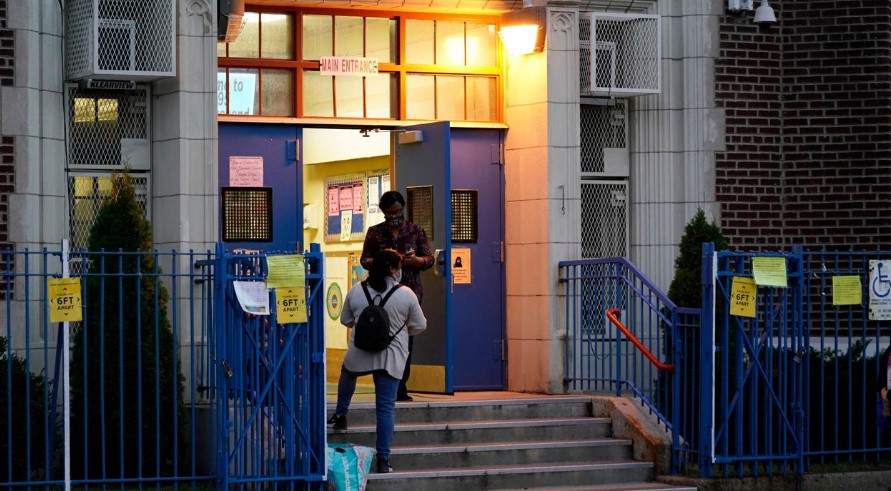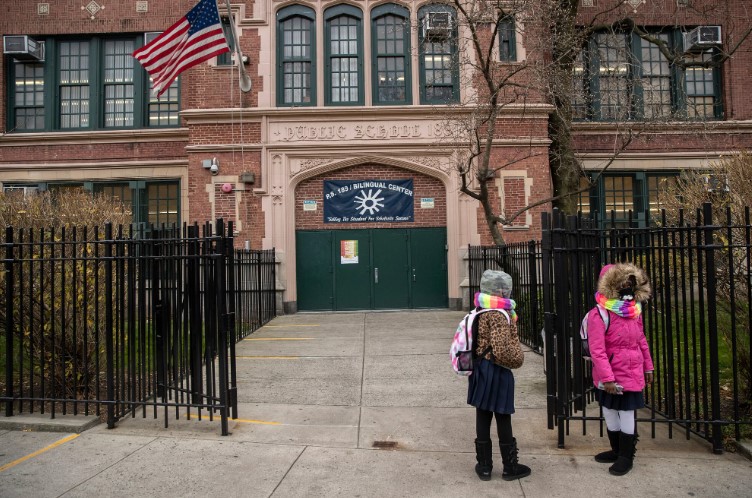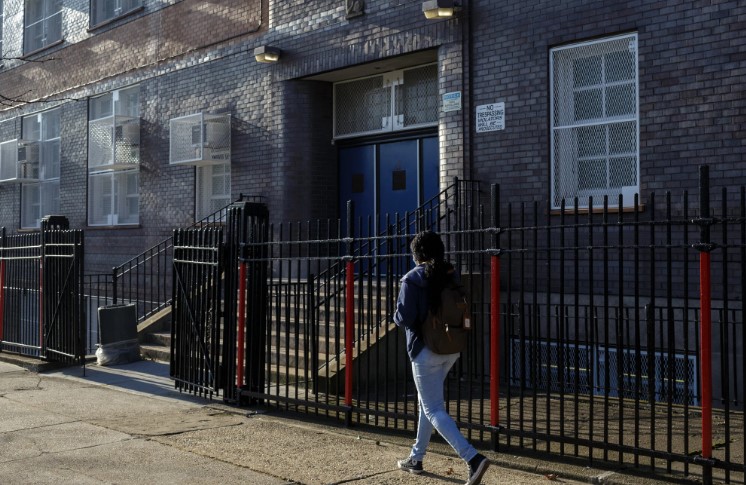A representative for the New York City Department of Education stated on Thursday that ChatGPT has been removed from all school devices and networks because of fears that the controversial artificial intelligence application will encourage dishonesty and spread false information.
Because it permits students to easily generate essays and other assignments by pressing a few keys, ChatGPT has caused alarm among educators ever since its release in November. These educators fear that it will lead to academic dishonesty because it allows students to easily generate essays and other assignments.
Access to ChatGPT is restricted on networks and devices used in New York City Public Schools, according to a statement released by the Department of Education’s spokesperson Jenna Lyle.
“Due to concerns regarding the negative impacts on student learning, and concerns regarding the safety and accuracy of content,” the statement read.
NYC Schools Block Access To ChatGPT Over Cheating Concerns
A representative for the New York City Department of Education stated on Thursday that ChatGPT has been removed from all school devices and networks because of fears that the controversial artificial intelligence application will encourage dishonesty and spread false information.
Because it permits students to easily generate essays and other assignments by pressing a few keys, ChatGPT has caused alarm among educators ever since its release in November. These educators fear that it will lead to academic dishonesty because it allows students to easily generate essays and other assignments.
Access to ChatGPT is restricted on networks and devices used in New York City Public Schools, according to a statement released by the Department of Education’s spokesperson Jenna Lyle.
“Due to concerns regarding the negative impacts on student learning, and concerns regarding the safety and accuracy of content,” the statement read.
“While the technology might be able to deliver fast and simple solutions to problems, it does not teach the critical thinking and problem-solving abilities that are important for academic and lifelong success,” Lyle explained further.
ChatGPT is a “chat bot” that was developed by the research company OpenAI. It has quickly acquired popularity in recent months due to its remarkable ability to generate responses to user requests that are eerily similar to human responses.
The software is able to generate high-quality solutions to questions on a wide variety of subjects and in a variety of styles, such as essays, poetry, and even humour.
Darren Hick, the student’s professor, discovered that the student had used ChatGPT to create an essay. Now he is warning that it could open the door to a whole new realm of dishonesty in the academic world.
A student who was caught cheating with ChatGPT by their professor exclaimed, “I feel abject horror.”
According to the article, the DOE would provide specific schools with permission to access ChatGPT if the schools intend to study the technology that is at the foundation of AI.

In addition, the ban will have no effect on users who attempt to access ChatGPT via “non-educational equipment or internet networks.”
On the website of OpenAI, it is mentioned that ChatGPT utilises a dialogue-based framework, which gives it the ability to “answer following inquiries, admit its mistakes, challenge faulty premises, and reject unsuitable requests.”
ChatGPT can still create faulty information or fraudulent information while it is generating its responses because the technology is not infallible. Some individuals have voiced their fear that the deficiencies of the ChatGPT tool may amplify inappropriate content and erroneous information if there are not adequate protections in place.
The previous month, a college professor in South Carolina revealed to The Post that he had caught one of his students using ChatGPT to generate an essay on the 18th-century philosopher David Hume and the paradox of horror. The paradox of horror refers to the idea that individuals can get enjoyment from something that they fear.
Also Read:
- House Speaker Election Coverage: Chamber Narrowly Votes To Adjourn For Day House Votes To Adjourn Until Thursday
- Atlanta Man Found Dead In Trunk, Police Offer Reward For Info
What Would Plato Say About ChatGPT?
Plato lamented the development of the alphabet because he feared it would lead to the decline of oratory skills based on rote memorization. Using the character of Thamus, the Egyptian king of the gods, Plato argues that the use of this newer technology will lead to

“Forgetfulness in the souls of the learners, because they will not use their memories,” that it will impart “not truth but only the semblance of truth,” and that those who adopt it will “appear to be omniscient and will generally know nothing,” with “the show of wisdom without the reality.”
What Would Plato Think Of ChatGPT If He Were Around Today?
ChatGPT, a new conversational AI programme released by OpenAI, is more than simply another AI hype cycle entry. It’s a big step forward when the articles it generates in response to free-form queries are on par with those you might find in a high-quality high school anthology.
Some of the most intriguing and concerning characteristics of ChatGPT will become apparent in secondary and tertiary educational institutions.
Writing essays is a common assignment in school, and it’s not for the sake of the final product (proud parents hanging GPAs on the fridge notwithstanding); rather, it’s for the benefit of the skills that students
learn in the process, such as how to conduct research, evaluate arguments, synthesise information, and write clearly and persuasively. In light of recent developments in artificial intelligence, possessing such abilities will be more crucial than ever.
ChatGPT provided me with thoughtful, well-reasoned, and comprehensible responses to my many questions on a variety of topics, including the ethical dilemmas confronted by journalists dealing with hacked materials,

the need for cryptocurrency regulation, and the possibility of democratic regression in the United States. Plus, it’s interactive, so I can get more information or make edits as needed.
However, its authors warn that on difficult themes or more intricate concepts, ChatGPT may provide highly reasonable responses that are nonetheless inaccurate.
We need laws that guarantee more people can continue to live with respect even if their skills are obsolete, just as civilizations eventually enacted a public safety net, a reduced workweek, and a minimum salary in response to technological developments like mechanisation.
We can now afford to let our imaginations run wild, giving more people more time off and better working circumstances.
It’s not enough to simply lament obsolete skills like Plato did; instead, we must acknowledge that when more complicated skills become indispensable, our society must educate people to acquire them in a fair and equitable manner. In the end, though, the fundamentals prevail. People should be treated as individuals, not as commodity skill sets.
Final Words
On Thursday, a spokesperson for the New York City Department of Education announced that the controversial artificial intelligence application ChatGPT had been banned from all school devices and networks due to concerns that it would promote dishonesty and the transmission of false information.
Since its inception in November, ChatGPT has alarmed teachers due to the simplicity with which their pupils can write essays and other assignments by hitting a few keys. Since it’s so simple for students to make new essays and assignments, some teachers worry it will encourage cheating.
The Department of Education’s spokeswoman, Jenna Lyle, has issued a statement saying that access to ChatGPT is limited on networks and devices utilised in New York City Public Schools.
Since it was “worried about the negative effects on student learning and worried about the safety and veracity of content,” the statement explained why.

